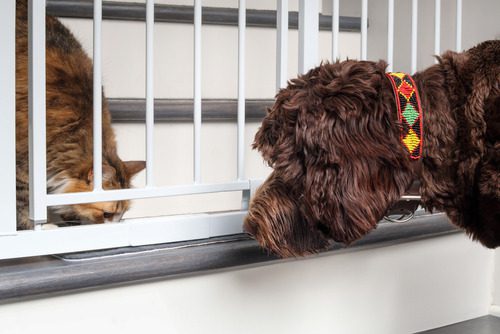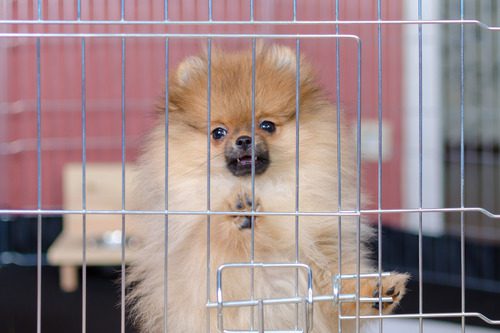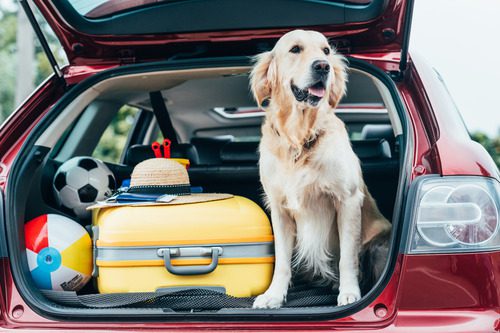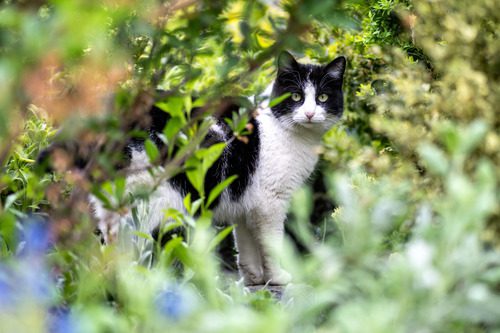Dog Eating Mulch: Is It Dangerous?
Dogs are naturally curious creatures, and their exploration often leads them to investigate their environment with their mouths. This behavior can sometimes result in our furry friends eating things they shouldn’t, including mulch. At Brown Veterinary Hospital in Terre Haute, IN, we understand the concern many pet owners have about their dog eating mulch. In this blog, we’ll explore whether this behavior is dangerous and what steps you can take to protect your pet.
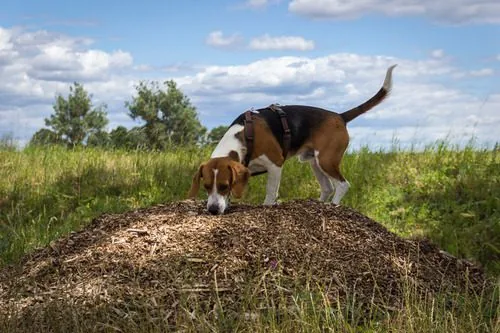
Why Do Dogs Eat Mulch?
Dogs eat mulch for various reasons, ranging from curiosity to behavioral issues. Some dogs are naturally drawn to the texture and smell of mulch, particularly if it contains organic materials like bark or compost. Others may chew on mulch out of boredom or anxiety. Understanding why your dog is attracted to mulch is the first step in addressing this behavior.
Mulch can also be appealing due to its scent, especially if it has been treated with fertilizers or pesticides. Dogs have an incredible sense of smell and might be drawn to the aroma of these substances, not realizing they could be harmful.
Potential Dangers of Mulch
Toxicity Concerns
One of the primary concerns with dogs eating mulch is the potential for toxicity. Certain types of mulch, such as cocoa bean mulch, can be particularly dangerous. Cocoa bean mulch contains theobromine, the same toxic ingredient found in chocolate, which is highly toxic to dogs. Ingesting even small amounts of cocoa mulch can cause severe symptoms such as vomiting, diarrhea, rapid heart rate, and in extreme cases, seizures or death.
Physical Blockages
Another significant risk of mulch ingestion is the potential for physical blockages. Large pieces of mulch can cause obstructions in a dog’s gastrointestinal tract, leading to severe health issues that may require surgical intervention. Symptoms of a blockage include vomiting, loss of appetite, lethargy, and abdominal pain. If you suspect your dog has ingested mulch and is showing these signs, contact Brown Veterinary Hospital immediately at 812-645-0715.
Signs and Symptoms of Mulch Ingestion
Gastrointestinal Issues
If your dog has been eating mulch, they may exhibit gastrointestinal issues such as vomiting, diarrhea, or constipation. These symptoms can indicate that the mulch is causing irritation or blockage in the digestive tract. Monitor your dog closely and seek veterinary attention if these symptoms persist or worsen.
Behavioral Changes
Ingesting toxic mulch can also lead to behavioral changes in dogs. You may notice increased restlessness, excessive drooling, or signs of discomfort. These changes can be a response to the toxic effects of the mulch or an indication of physical pain caused by blockages.
Signs of Poisoning
In severe cases, mulch ingestion can lead to signs of poisoning. Symptoms include rapid breathing, tremors, seizures, and a noticeable change in heart rate. If your dog exhibits any of these symptoms, it is crucial to seek immediate veterinary care.
Preventing Mulch Ingestion
Supervision and Training
The best way to prevent your dog from eating mulch is through supervision and training. Keep a close eye on your dog when they are outside and redirect their attention if they show interest in mulch. Training your dog to obey commands such as “leave it” can be incredibly effective in preventing them from chewing on or ingesting harmful substances.
Safe Alternatives
Providing safe alternatives for chewing can also help deter your dog from eating mulch. Offer chew toys, bones, or other dog-friendly treats to satisfy their urge to chew. Engaging your dog in regular exercise and mental stimulation can also reduce boredom and anxiety, which are common reasons dogs turn to inappropriate chewing behaviors.
What to Do If Your Dog Eats Mulch
If you catch your dog eating mulch, try to remove as much of it from their mouth as possible. Check the type of mulch and determine if it is potentially toxic. Contact Brown Veterinary Hospital at 812-645-0715 for guidance on the next steps, especially if the mulch is cocoa-based or if your dog shows signs of distress.
Veterinary Care
It is always best to err on the side of caution and consult with a veterinarian if your dog has ingested mulch. Our team at Brown Veterinary Hospital can perform a thorough examination and recommend appropriate treatments based on your dog’s condition. Early intervention can prevent serious health issues and ensure your pet’s safety.
Keeping Your Dog Safe from Mulch Dangers
Dogs eating mulch can be a concerning behavior for pet owners, but with the right knowledge and preventive measures, you can protect your pet from potential dangers. Understanding why dogs are attracted to mulch, recognizing the signs and symptoms of mulch ingestion, and knowing how to prevent and respond to this behavior are key to keeping your dog safe. If you have any concerns about your dog eating mulch or if your dog is exhibiting symptoms of mulch ingestion, please call Brown Veterinary Hospital in Terre Haute, IN, at 812-645-0715.
Recent Posts
About Brown Veterinary Hospital
We are here to serve as your partner in keeping your four-legged family member healthy, ensuring you have all the tools you need to provide them with a lifetime of outstanding care. Our animal hospital in Terre Haute offers a full range of services to nurture and extend your pet’s life, from wellness and preventative care to critical care, exotic pet care, and dermatology.

